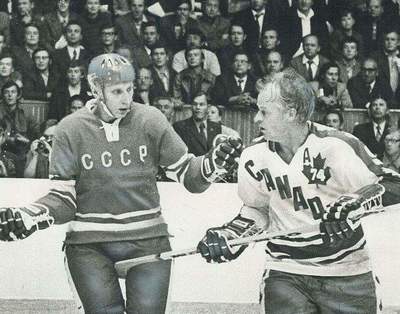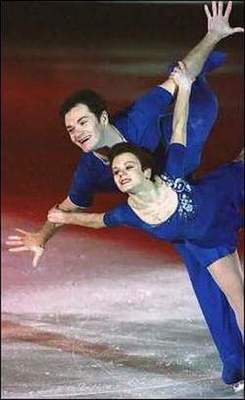The Russian language is different from the Ukrainian

Having common roots Russian and Ukrainian languages at first glance seem to be very similar. But this is not the case. In fact, they have more differences than similarities.
Some roots
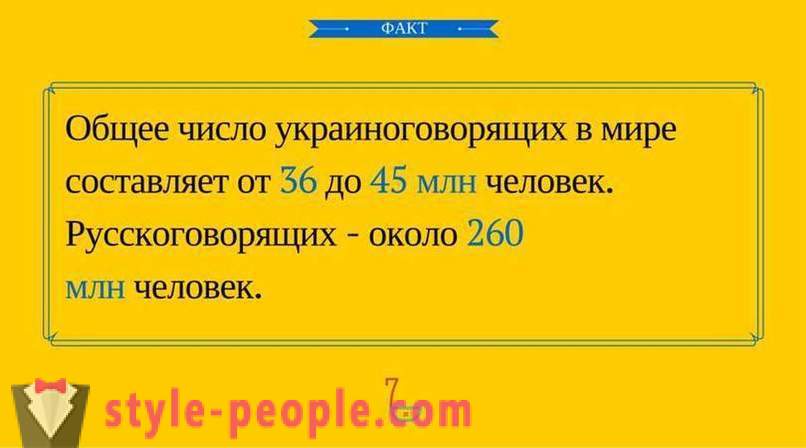
It is known that Ukrainian and Russian languages belong to the same group of the East Slavic languages. They have a common alphabet, similar grammar and lexical considerable uniformity. However, the characteristics of the cultures of the Ukrainian and Russian peoples have led to significant differences of language systems.
The first difference between the Russian and Ukrainian language already found in the alphabet. The Ukrainian alphabet, to issue at the end of the XIX century, in contrast to the Russian does not use letters Oo, bb, yy, Uh, but there Ґґ, Єє, II, Її that are not in Russian.
As a consequence - uncharacteristic for the Russian pronunciation of certain sounds of the Ukrainian language. Thus, absent in Russian letter "¯" sounds approximately as "YI", "W" is pronounced more firmly as in the Belarus or translated, and "G" transmits guttural, fricative.
Related languages?
Modern research shows that the Ukrainian language is closer to other Slavonic languages - Belarusian (29 similarities), Czech and Slovak (23) Polish (22), Croatian and Bulgarian (21), and only 11, he has similarities with the Russian language.
Some linguists on the basis of these data cast doubt on the association of Russian and Ukrainian language in the language group.
Statistics show that only 62% of words are common to Russian and Ukrainian languages. For this indicator, the Russian language in relation to Ukrainian is only in fifth place after the Polish, Czech, Slovak and Belarusian. For comparison, you will notice that the English and Dutch on the lexical composition similar to the 63% - that is, more than Russian and Ukrainian.
The divergence of ways
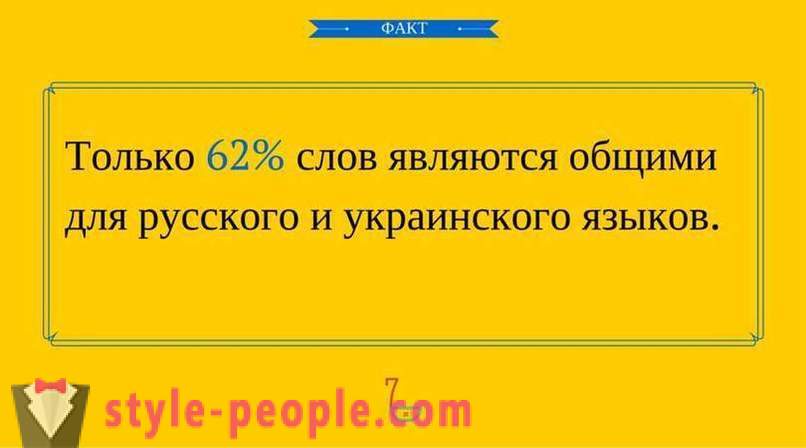
The differences in Russian and Ukrainian languages are largely due to the peculiarities of the formation of the two nations. Russian nation is centrally formed around Moscow, which led to a dilution of its lexicon of Finno-Ugric and Turkic words. The Ukrainian nation was formed by combining the southern Russian ethnic groups, and therefore, the Ukrainian language is largely preserved old Russian base.
By the middle of the XVI century, Ukrainian and Russian languages have significant differences.
But if the texts of the time on the old Ukrainian language generally understood modern Ukrainians, then, for example, documents the era of Ivan the Terrible are very difficult to "translate" a resident of today's Russia.
Even more significant differences between the two languages began to appear with the start of formation of Russian standard language in the first half of the XVIII century. An abundance of Church Slavonic words in the new Russian language made it difficult to understand for the Ukrainians.
For example, take the Church Slavonic word "blagodarỳ" from which there was known to us, "Thank you." Ukrainian language, in contrast, has kept the Old Russian word "dákuyu" which now exists as "dyakuyu".
Since the end of the XVIII century begins to develop Ukrainian literary language, which is in line with European processes, gradually getting rid of ties with the Russian language.
In particular, there is a refusal to tserkovnoslavyanizmy - instead focuses on the folk dialects, as well as borrowing words from other, primarily eastern European languages.
As far as the vocabulary of the modern Ukrainian language close a number of Eastern European languages and is far from the Russian can demonstrate the following table:

important feature of the Ukrainian language is its dialectical diversity. This is a consequence of a finding of individual regions of Western Ukraine in the other countries - Austria, Hungary, Romania, Poland, Czechoslovakia. So, we are residents of Ivano-Frankivsk region is not always understood resident of Kiev, that while Moscow and Siberian speak the same language.
meanings Game

Despite the fact that Russian and Ukrainian languages are many common words, and more words similar in sound and spelling, they often have different shades of meaning.
Take, for example, the Russian word for "other" and related Ukrainian word "inshy". If in sound and spelling these words are similar, their meaning has notable differences.
More exact match Ukrainian word "inshy" in Russian is "the other" - it is a bit more formal and will not be such an emotional and artistic expression, the word "other".
One word - "sorry" - in both languages is identical in spelling and pronunciation, but different in meaning. In Russian, it exists as a predicative adverb. Its main task - to express regret over something, or pity for anyone.
In the Ukrainian language, as used as an adverb, the word "sorry" has a similar meaning. However, it can also be a noun, and then its connotations significantly enriched by becoming in tune with terms such as grief, bitterness, pain. "Oh yes it was the pity of Tuga vsіy Ukraїnі". In this context, the word in the Russian language is not used.
On the Western-style
Often by international students can be heard that the Ukrainian language is more similar to European languages than Russian. It has long been noticed that the translation from French or English into Ukrainian in some ways to do easier and more convenient than Russian.
All the matter in certain grammatical structures. Linguists there is a joke in European languages "Pop had a dog," and only in Russian, "the priest had a dog." Indeed, in the Ukrainian language in such cases, along with the verb "have" used the verb "to have". For example, the English phrase "I have a younger brother" to the Ukrainian may sound like "Do Me Je molodshy brother", and as "May I molodshogo brother."
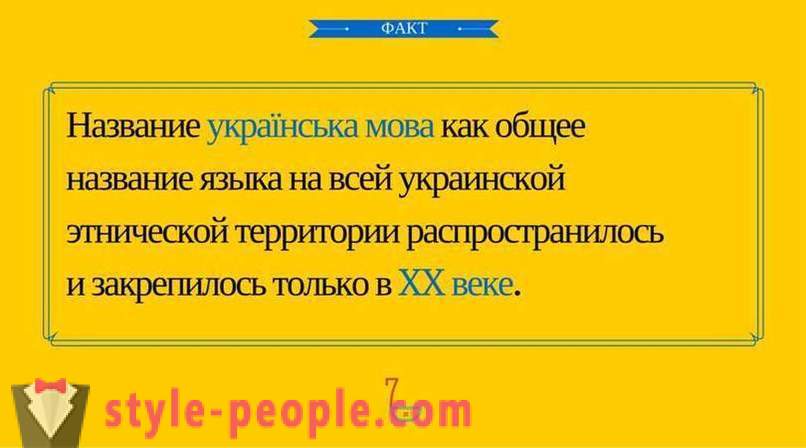
The Ukrainian language, unlike Russian adopted from European languages modal verbs. For example, in the phrase "May I zrobiti tse" ( "I have to do it") modality used in the sense of obligation, as well as in English - "I have to do it". In the Russian language a similar function verb "to have" long since faded from use.
Another measure of the difference in the grammar is that the Russian verb "wait" is transient, and the Ukrainian "chekati" - is not, and, as a consequence, it is not used without a preposition: "check for you" ( "waiting for you"). For comparison, in English - "waiting for you".
However, there are cases where the Russian language is used borrowings from European languages, but they are not Ukrainian. Thus, the names of the months in the Russian language is a kind of rubber stamp with Latin, for example, March - martii (Lat.), März (it.), March (Eng.), Mars (fr.). Ukrainian language is maintained contact with Slavic vocabulary - "berezen".
Taras Repin
































